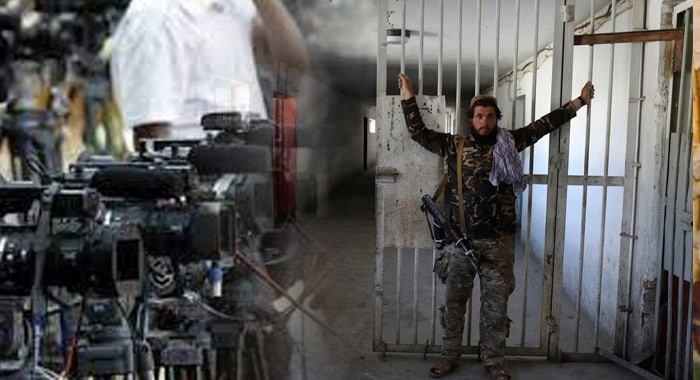In yet another alarming display of repression, the Taliban has detained at least seven journalists and media workers over the past three weeks, intensifying its campaign to silence dissent and choke independent journalism in Afghanistan.
According to the Afghanistan Journalists Centre (AFJC), 15 media professionals are currently being held in Taliban custody. The organisation condemned the arrests as a brazen attack on press freedom and demanded the immediate and unconditional release of all detainees.
The recent wave of arrests includes three individuals, a journalist and two media activists, who were detained in Kabul on July 24 for allegedly organising educational courses for girls. They are reportedly being held and interrogated at the Taliban’s intelligence headquarters.
Just a day earlier, another person was arrested in Kabul’s Karte 3 district, accused of offering technical support to Afghan news outlets operating from abroad. The individual was transferred to a Taliban-run intelligence detention centre.
On July 7, a provincial journalist was also arrested and released only after signing a pledge to comply with the Taliban’s restrictive media rules and producing two guarantors — a tactic critics say is meant to instil fear and control among journalists.
Perhaps most disturbing was the July 15 raid on Pixel Media Company, where Taliban intelligence agents and the so-called morality police detained the director and deputy director. They confiscated critical equipment, including cameras and data drives, and later released a state-produced video showing what appeared to be forced confessions. The Taliban claimed the arrests were tied to the dubbing of foreign TV shows.
The AFJC slammed the video release as propaganda, denouncing the regime’s tactics as blatant violations of international standards for press freedom. Citing safety concerns, the group has withheld the names of those detained.
Under Taliban rule, Afghanistan has become one of the most dangerous places in the world to be a journalist. Since returning to power, the regime has enforced harsh censorship, shuttered independent outlets, and used threats, raids, and imprisonment to stifle free expression.
Rights groups warn that the continued harassment and detention of media workers reflects a systematic effort to erase critical voices and isolate Afghan society from the rest of the world.





